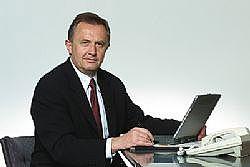COMPANIES are always looking to improve their bottom line – improve profitability through product innovation, productivity gains and better systems and processes. In the 1980s and 1990s, many firms turned to ISO 9000 for a solution.
However, during this time, many simply used ISO 9000 certification as a marketing tool rather than ensuring that these quality management systems were being used effectively to add value and profitability to their business.
Today, businesses are implementing quality management systems as a means to improving profitability, whether through lowering costs or lowering risks in their business processes. Adhering to prescribed quality management standards is swiftly becoming basic business best practice and in many cases it can be a legal and contractual necessity.
The recent merger of New Zealand’s largest management certification company Telarc Limited with SAI Global, one of the world’s leading assurance organisations, has now brought quality management systems back into the spotlight.
Large multi-national manufacturers, right down to small and medium size businesses can all benefit from quality management processes that help to strengthen their products and services.
Importantly for manufacturers, quality management systems can make work processes safer by reducing hazards, and can be taken into consideration by ACC to reduce the levies of a business. These systems can reduce error rates and mistakes and lower wastage, all of which directly affects bottom line performance. Without these continuing problems, managers have more time to plan and make the business prosper.
Management systems certification also confirms an organisation’s commitment to continual improvement and ability to consistently deliver goods or services to customers on time.
Many manufacturers find that their buyers also have quality management systems in place to ensure that the products they use are of quality. ISO 9001 certification provides these customers with certainty and confidence in the businesses’ ability to deliver products and services that meet their requirements.
Through implementing a quality management system, businesses find that their suppliers also know precisely what is expected of them. The systems in place bring the parties close together and provide the opportunity for an enhanced working relationship.
As New Zealand’s longest established and most trusted certification body, Telarc SAI offers a comprehensive range of assessment and recognition services for management systems. Telarc SAI has New Zealand’s highest profile certification mark, lending greater credibility to businesses that implement their programmes.
For large manufacturers, compliance with ISO 9001, the most widely recognised of all international standards, can be vital to the success of their business. Updated in 2000, the focus of this system is on achieving business excellence based on management principles, increasing levels of: customer focus, system approach to management, leadership, continual improvement, involvement of people, factual approach to decision making, process approach and mutually beneficial supplier relations.
However ISO 9001 is often too complex for smaller businesses to implement. Many small and medium businesses face difficulties committing the staff, resources, time or energy needed to manage the end-to-end requirements of system certification and quality management to the required standards.
In recognition of this, Telarc SAI offers Q-Base and Q-Safe, two robust management and certification systems for SMEs.
Q-Base is an entry-level certification system that allows SMEs to build and change compliance requirements as they grow but which clearly shows the business has basic management systems in place, thereby assuring a quality product or service.
Like ISO 9001, Q-Base covers eight key criteria that form the basis of a good management system, including control of documents and records, training, purchasing and identifying customer needs.
The system has recently been enhanced with the addition of Q-Safe, an integrated quality and health and safety system code formally recognised by the Department of Labour. This programme aligns quality objectives and workplace safety goals to make an efficient, cost-effective system.
Telarc’s merger with SAI Global has led to the creation of a powerful assurance provider in the Australasian region. The company is equipped to offer New Zealand businesses an effective Trans-Tasman certification service, as well as access to SAI Global’s full product range - including new certification and training programmes.
New Zealand businesses now have an increased access to international best practices in quality management systems, which can be used to distinguish themselves from competitors.
For exporting manufacturers, there is now a closer similarity between the quality management systems of Australia and New Zealand, facilitating trade between the two countries.
A further advantage for clients using Telarc SAI certification is the public assurance offered by being listed in the Telarc SAI register of quality assured products and services.
To find out more about how Telarc SAI can help to ensure that your management system supports strong performance, and to read about how their products have helped various businesses; go to: www.telarcsai.co.nz/index.htm






